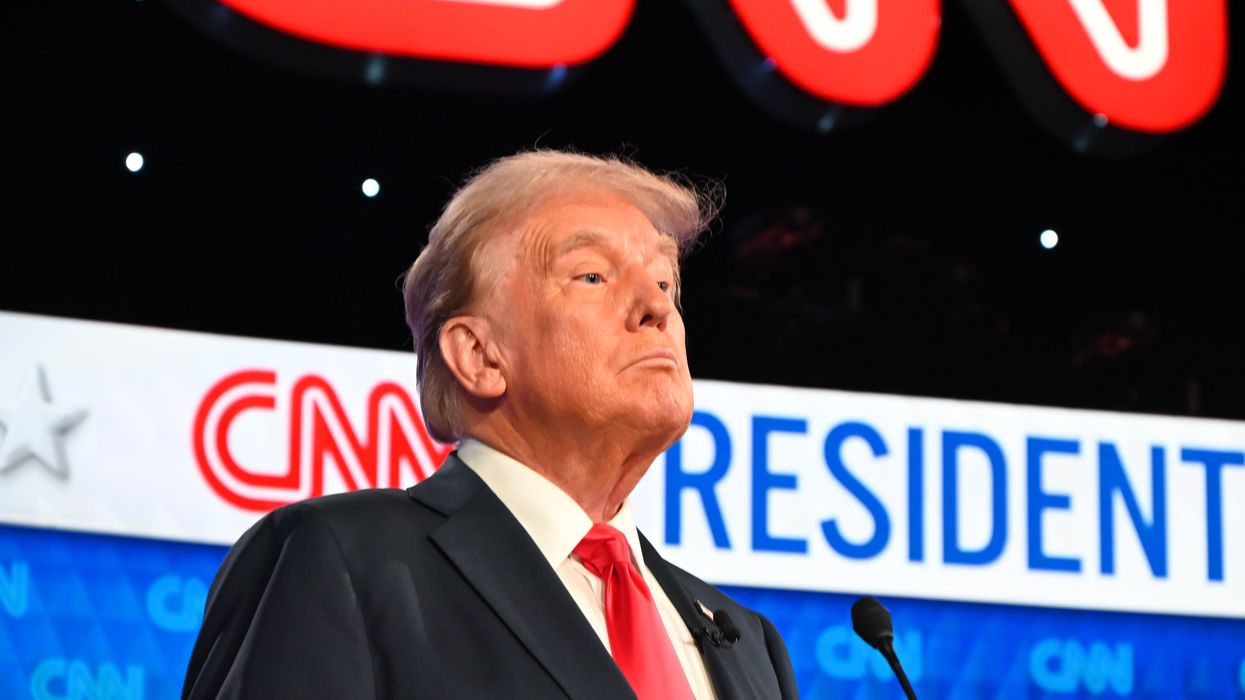Assari is an associate professor of public health and Internal Medicine at Charles R. Drew University of Medicine and Science. He is a member of the Scholars Strategy Network.
On Thursday, we witnessed a debate between President Joe Biden and former President Donald Trump. What captured most of the audience's attention were Biden's occasional stumbles and Trump's numerous statements inaccuracies. Biden appeared humble and policy-focused, while Trump was loud, assertive and well-spoken.
However, another significant aspect was Trump's rhetoric, which was often filled with threats, fear and loss, especially on topics like immigration and crime. In contrast, Biden's points were primarily centered around policies and statistics aimed at benefiting Americans overall, with a particular focus on the vulnerable.
Despite Biden's stumbles and Trump's lower factual accuracy, Trump's emphasis on the power of negative information gave him an advantage. His strategy tapped into the human mind's bias towards negative information.
When comparing the influence of good and bad, there is an undeniable truth: Bad is stronger than good. This phenomenon, deeply rooted in the human psyche, has significant implications in various domains, including politics. Understanding this principle helps explain why Trump had the upper hand in the debate.
A basic and powerful fact about the human mind is its preferential attention devoted to threats. Our memories are also inherently biased towards negative experiences. This is not just a superficial observation; it's a well-documented phenomenon in social psychology and economics literature. It is also rooted in human evolution and the wiring of our brain. Roy F. Baumeister and his colleagues famously highlighted this in their paper, "Bad Is Stronger than Good," which has been cited over 10,000 times by other scientists.
Baumeister's review paper, published in 2001, showed us that negative events have a more significant impact on our emotions, thoughts and behaviors than positive ones.
For instance, people react more strongly to threats and failures than to opportunities and successes. This is evident in experiments where negative experiences consistently overshadow positive ones in terms of emotional impact.
In various domains, from romance to everyday interactions, negative experiences tend to have a more profound and lasting effect than positive ones. This is because the human brain is wired to prioritize and remember negative stimuli as a survival mechanism.
Baumeister's review provided us with many real-world examples that illustrate why negative information is more compelling.
Journalists know that stories about negative news often receive more attention and are more widely shared than positive ones. This is because we are naturally drawn to bad news, which we perceive as more urgent and important. On social media, posts that evoke anger, fear, or outrage tend to go viral more quickly than those that promote happiness or positivity. This is a direct consequence of the mind's bias towards bad information.
Economists have also shown us asymmetry between our sensitivity to loss and reward/gain. The pain of losing $10 may be more than the reward from winning $20. Neuroscientists, meanwhile, have shown how more primitive parts of our brain are responsible for our loss aversion.
It's essential for the audience to be aware of the power of Trump’s messaging about threats and negativity. Such messaging continues to give him an edge, regardless of the actual probabilities of these fears. This continuous advantage is not just a matter of political tactics but is deeply rooted in the psychological makeup of the audience.
At the same time, Biden did not sufficiently focus on the threats posed to our democracy by a second Trump term and MAGA Republicans. This was a missed opportunity during the debate. By highlighting the potential risks of another Jan. 6 and the negative consequences associated with a second Trump administration, Biden could have better leveraged the power of bad, which could persuade undecided voters who are wary of the MAGA agenda.
As we reflect on the impact of the debate, Americans should be mindful that some of Trump's advantage in Thursday's debate was not solely due to Biden's occasional stumbles but also to Trump's excellence in harnessing the "power of bad." This proficiency could influence election results. Understanding these psychological principles can help us mitigate the unparalleled influence of such tactics.




















Trump & Hegseth gave Mark Kelly a huge 2028 gift